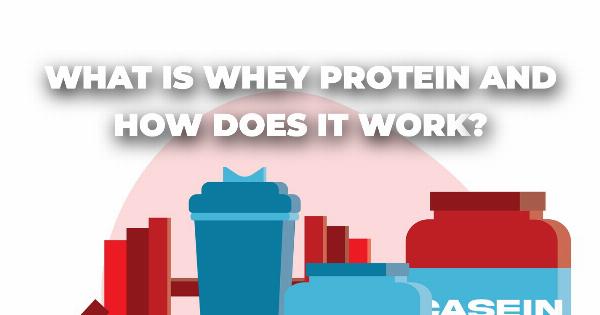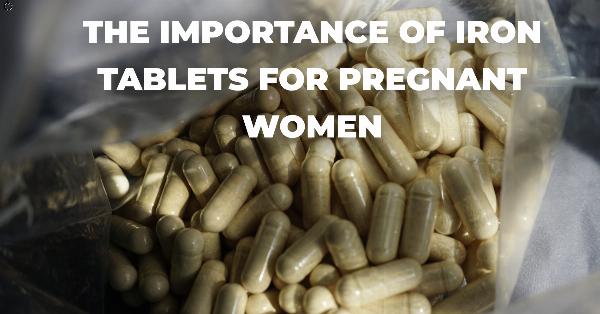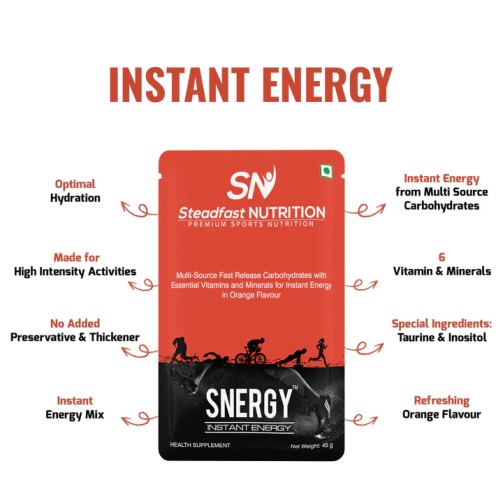 Custom SEO Strategy – Your Path to Page #1 Starts Here!
Custom SEO Strategy – Your Path to Page #1 Starts Here!
Energy Drinks: Their Ingredients and Their Effects on Our Bodies
Written by Fitness Advisor » Updated on: June 17th, 2025

Energy drinks have surged in popularity over the past few decades, promising to deliver a quick energy boost, enhanced alertness, and improved performance. These beverages, often marketed to young adults, athletes, and busy professionals, are now a staple in many people's diets. But what exactly are energy drink made of, and how do they affect our bodies? In this blog, we'll explore the common ingredients in energy drinks and examine their potential effects on our health.
The Ingredients of Energy Drinks
Energy drinks typically contain a blend of caffeine, sugar, vitamins, amino acids, and herbal extracts. Let's examine each of these components more closely.
- Caffeine:- Caffeine is the primary ingredient in most energy drinks. It is a stimulant that can increase alertness and reduce the perception of fatigue. The amount of caffeine in energy drinks can vary widely, ranging from about 50 milligrams to over 300 milligrams per serving. For comparison, a typical cup of coffee contains about 95 milligrams of caffeine.
- Sugar:- Sugar is another common ingredient, providing a quick source of energy. Some energy drinks contain as much as 27 grams of sugar per serving, equivalent to about seven teaspoons. This high sugar content can lead to a rapid spike in blood sugar levels, followed by a crash that can leave you tired and irritable.
- Vitamins:- Energy drinks often contain B vitamins, such as B6 and B12, which affect energy metabolism. These vitamins help convert food into energy that the body can use. While they are essential for good health, most people get enough B vitamins from their diet, making the additional amounts in energy drinks unnecessary for most.
- Amino Acids:- Taurine is a common amino acid found in energy drinks. It is believed to have various health benefits, including supporting cardiovascular function and development of the nervous system. Other amino acids like L-carnitine are sometimes included, claiming to improve energy levels and athletic performance.
- Herbal Extracts:- Some energy drinks include herbal extracts like ginseng and guarana. Ginseng improves mental function and physical stamina, while guarana contains additional caffeine to enhance energy and alertness.
- Artificial Sweeteners and Flavors:- Many energy drinks use artificial sweeteners, such as sucralose or aspartame, to reduce their sugar content. These sweeteners provide sweetness without calories, but they also come with their own set of controversies and potential health concerns.
How Do Energy Drinks Affect Our Bodies?
Now that we understand what's in energy drinks let's examine how these ingredients can impact our health.
- Boosting Energy and Alertness:- The most immediate effect of energy drinks is increased energy and alertness, mainly due to the caffeine content. Caffeine blocks the action of adenosine, a brain chemical involved in sleep. This results in increased neuronal firing and the release of other neurotransmitters like dopamine and norepinephrine, which can make you feel more awake and alert.
- Physical Performance:- Some studies suggest that caffeine and amino acids like taurine can enhance physical performance by improving endurance and reducing perceived effort. This is why energy drinks are often consumed before workouts or athletic events.
- Mental Function:- In addition to physical benefits, the caffeine in energy drinks can improve cognitive function, including memory, concentration, and reaction time. However, these effects are generally short-lived and can be followed by reduced mental performance as the caffeine wears off.
Negative Side Effects:-
Despite the benefits, energy drinks can also have adverse side effects, especially when consumed in large quantities.
- Jitters and Anxiety:- High doses of caffeine can lead to symptoms like jitters, anxiety, and increased heart rate. For people who are sensitive to caffeine, even small amounts can cause these effects.
- Insomnia:- Consuming energy drinks late in the day can interfere with sleep, leading to insomnia. Poor sleep can have adverse effects on overall health and well-being.
- Digestive Issues:- The high sugar content in some energy drinks can cause digestive discomfort, including bloating and diarrhoea. Artificial sweeteners can also have laxative effects for some people.
- Heart Health:- Some evidence suggests that the high caffeine and sugar content in energy drinks can negatively affect heart health. This includes increasing blood pressure and heart rate, which can be risky for people with underlying heart conditions.
- Addiction and Withdrawal:- Regular consumption of energy drinks can lead to caffeine dependence. When a person becomes dependent on caffeine, they may experience withdrawal symptoms such as headaches, fatigue, irritability, and difficulty concentrating when they don't consume it.
- Impact on Children and Adolescents:- Children and adolescents are particularly vulnerable to the effects of caffeine. Their smaller body size means they can experience more substantial effects from smaller amounts of caffeine and may be more susceptible to adverse side effects. Some health organizations recommend that children and teens avoid energy drinks altogether.
Moderation and Alternatives
Given the potential risks associated with energy drinks, moderation is key. It's essential to be mindful of how much caffeine and sugar you consume and recognize the signs of overconsumption.
For those looking for a safer way to boost energy, there are several alternatives to energy drinks:
- Water:- Staying hydrated can improve energy levels and cognitive function. Sometimes, fatigue is simply a sign of dehydration.
- Balanced Diet:- Eating a balanced diet with plenty of fruits, vegetables, whole grains, and lean proteins can provide sustained energy throughout the day.
- Regular Exercise:- Physical activity can boost energy levels and improve overall health.
- Adequate Sleep:- Ensuring quality sleep is crucial for maintaining energy levels and overall well-being.
- Green Tea:- Green tea contains less caffeine than energy drinks and provides antioxidants that can benefit health.
Conclusion
Energy drinks can quickly boost energy and alertness, but they come with potential risks and side effects, especially when consumed in excess. Understanding the ingredients and how they affect your body can help you make more informed choices about when and how to drink these beverages. As with many things in life, moderation is key. Opting for healthier alternatives and maintaining good lifestyle habits can help you stay energized and healthy without relying on energy drinks.
Note: IndiBlogHub features both user-submitted and editorial content. We do not verify third-party contributions. Read our Disclaimer and Privacy Policyfor details.
Copyright © 2019-2025 IndiBlogHub.com. All rights reserved. Hosted on DigitalOcean for fast, reliable performance.
















